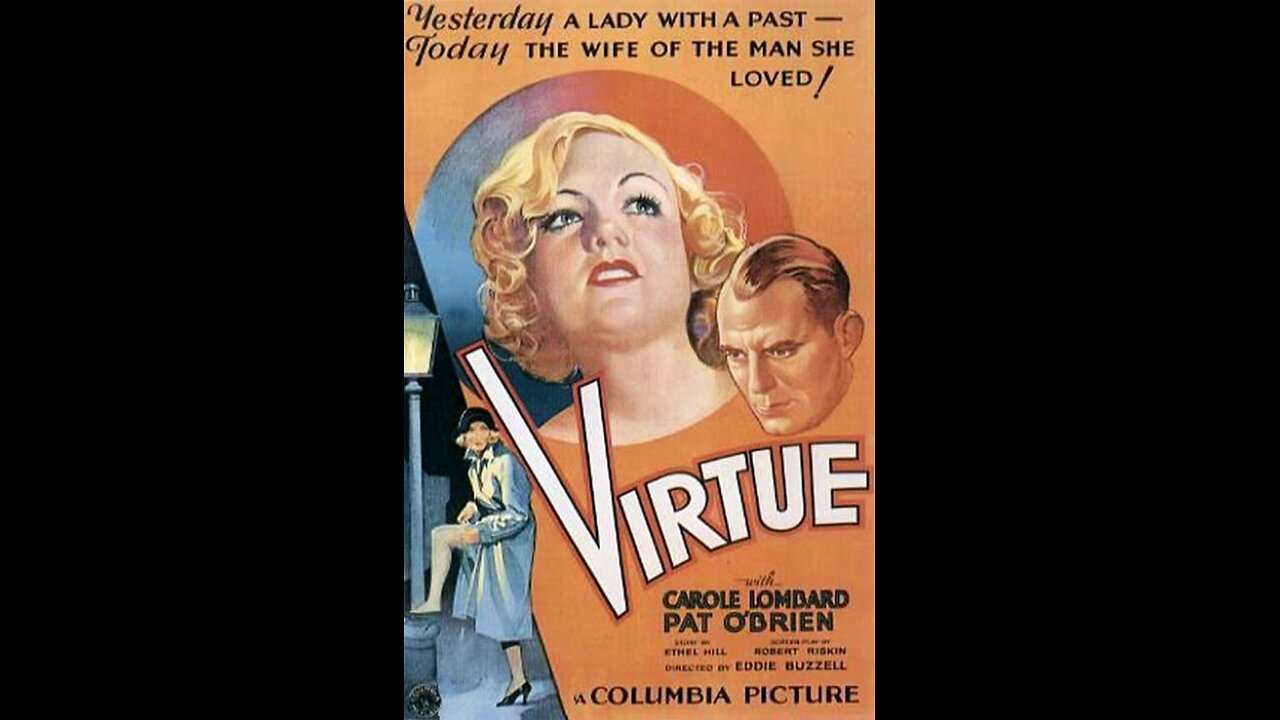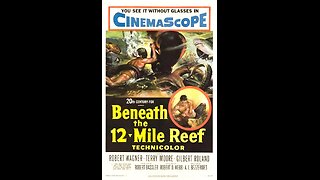Premium Only Content

Virtue (1932) | Directed by Edward Buzzell
"Virtue" (1932) is a pre-Code romantic drama directed by Edward Buzzell, featuring a cast led by Carole Lombard, Pat O'Brien, and Ward Bond. The film stands as a notable example of early 1930s cinema, exploring themes of morality, redemption, and societal expectations.
Carole Lombard stars as Mae, a woman with a troubled past who struggles against societal judgments and attempts to find redemption in a relationship with a cab driver, played by Pat O'Brien. The film navigates the challenges faced by the characters as they confront moral dilemmas and societal prejudices.
Lombard's performance is a standout in "Virtue," showcasing her versatility as an actress. Her portrayal of Mae is emotionally rich, capturing the character's complexity and vulnerabilities. Pat O'Brien complements Lombard with a solid performance, portraying a character torn between love and societal expectations.
The film's narrative delves into themes that were relatively daring for its time, including premarital relationships, redemption, and the impact of societal judgments on individuals. "Virtue" benefits from the pre-Code era's more permissive approach to such themes, allowing for a more frank and nuanced exploration.
Edward Buzzell's direction strikes a balance between melodrama and social commentary, effectively conveying the struggles faced by the characters. The film's cinematography and production design capture the gritty urban atmosphere of 1930s New York, adding authenticity to the narrative.
While "Virtue" was well-received for its bold storytelling and Lombard's compelling performance, some critics may argue that certain plot elements and characterizations adhere to the melodramatic conventions of the era. Additionally, the film's treatment of moral themes may be seen as reflective of the societal norms of its time.
In conclusion, "Virtue" (1932), directed by Edward Buzzell and starring Carole Lombard and Pat O'Brien, is a notable pre-Code drama that tackles themes of morality and redemption. Lombard's standout performance and the film's willingness to address societal taboos contribute to its historical significance within the context of early 1930s cinema.
-
 1:41:55
1:41:55
Classic Films & Movies Archive
1 day agoBeneath the 12-Mile Reef (1953) | Directed by Robert D. Webb
76 -
 1:14:45
1:14:45
Awaken With JP
5 hours agoTrump's Making Everyone His B*tch LOL - LIES Ep 76
60.6K38 -
 1:41:43
1:41:43
Megyn Kelly
1 day agoMedia's ICE Hoax, Vance's Masterclass on CBS, & Trump vs Bass, w/ Steve Bannon & Batya Ungar-Sargon
68.3K65 -
 1:04:28
1:04:28
In The Litter Box w/ Jewels & Catturd
23 hours agoGreen New Scam | In the Litter Box w/ Jewels & Catturd – Ep. 729 – 1/28/2025
73.9K33 -
 2:03:41
2:03:41
The Quartering
6 hours agoTrump To END Income Tax, Captain America Backlash, Obese Rapper Sues Lyft & Surge Pricing In Walmart
84.4K42 -
 1:05
1:05
tether
12 hours agoHadron by Tether - tokenize anything, anywhere
27.9K3 -
 34:32
34:32
Standpoint with Gabe Groisman
21 hours agoGovt. Workers AREN’T Working Says DOGE Chair Sen. Joni Ernst
21.6K9 -
 56:49
56:49
Savanah Hernandez
5 hours agoMASS DEPORTATIONS ARE HERE AND THEY ARE GLORIOUS
37.3K17 -
 21:12
21:12
Clownfish TV
18 hours agoThe Video Game Industry LITERALLY Wants You Dead?!
27K8 -
 1:35:44
1:35:44
Right Side Broadcasting Network
8 hours agoLIVE REPLAY: First Press Briefing by White House Press Secretary Karoline Leavitt - 1/28/25
130K125